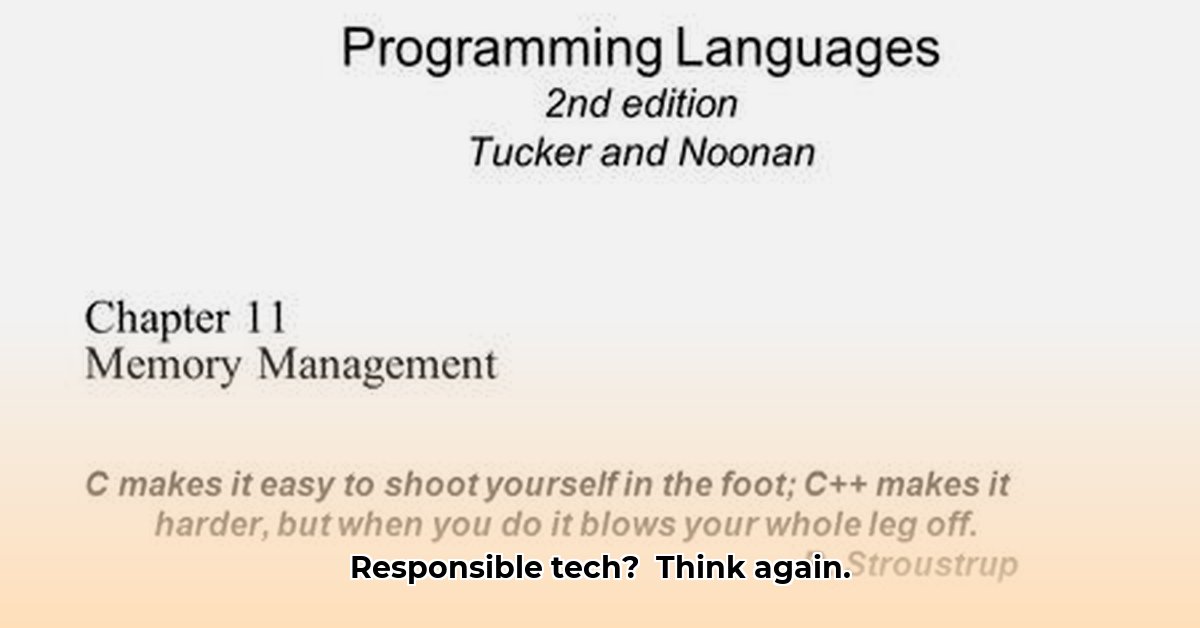
The digital revolution has irrevocably altered our lives, weaving technology into the fabric of our existence. From the algorithms shaping our newsfeeds to the AI powering medical diagnoses, the ethical implications of computing are no longer a futuristic concern; they are the defining issues of our time. CSE 2501 addresses these critical challenges, equipping students with the frameworks and practical knowledge to navigate the complex moral landscape of the tech world. This guide will explore the key themes covered in CSE 2501, emphasizing real-world examples and actionable strategies for responsible technology development and use.
Understanding the Ethical Dimensions of Computing
The rapid advancement of technology presents unprecedented ethical dilemmas. Consider the impact of facial recognition software on privacy, the potential for algorithmic bias in hiring processes, or the environmental consequences of data centers. These are not abstract philosophical debates; they are real-world problems demanding immediate attention. CSE 2501 is designed to equip students with the tools to address these very problems. It's about moving beyond simply understanding the technology to understanding its implications for society.
Key Ethical Challenges Explored in CSE 2501
CSE 2501 delves into the core ethical questions facing the computing field today. These include:
Privacy: The collection and use of personal data raise fundamental questions about individual autonomy and the balance between individual rights and societal needs. How much data is too much? What safeguards are necessary to protect sensitive information? CSE 2501 provides a comprehensive examination of these crucial aspects of data privacy in a digital world, analyzing the ethical implications of data mining, surveillance technologies and the responsible handling of personal information. Are current data protection laws strong enough to protect us from the increasing use of personal data?
Security: The digital realm often exists in a state of inherent risk. Cybersecurity threats, ranging from data breaches to malicious software, pose significant dangers to individuals and organizations alike. CSE 2501 emphasizes the responsibility of developers and users in establishing robust security measures. How do we balance the ease of access with the need for strong security protocols?
Intellectual Property: The ease of copying and distributing digital content has created significant challenges to intellectual property rights. CSE 2501 engages with copyright law, open-source models and the ethical considerations surrounding intellectual property. How can we ensure fair compensation for creators while promoting access to information and innovation?
Algorithmic Bias: Algorithms, while appearing objective, can reflect and amplify existing biases in their training data, potentially leading to discriminatory outcomes. CSE 2501 examines these issues head-on, providing methods for identifying and mitigating bias in algorithmic systems. How can we ensure that AI systems are fair, equitable, and inclusive?
Global Impact: Technology transcends national borders, impacting different cultures and communities in unique ways. CSE 2501 explores the global ethical implications of technology, encouraging students to consider the diverse perspectives and potential consequences of their work. How can we ensure technology’s development and use serves all humanity, regardless of geographic location or cultural background?
Ethical Frameworks and Real-World Applications
CSE 2501 doesn't simply identify ethical problems; it provides the tools to address them effectively. The course explores various ethical frameworks, such as utilitarianism (maximizing overall good) and deontology (adhering to moral duties), offering practical strategies for resolving ethical dilemmas encountered in real-world scenarios.
Case Studies: Navigating Complex Moral Choices
The course utilizes real-world case studies to illustrate the application of ethical principles. For example, students may analyze the ethical considerations surrounding the use of facial recognition technology in public spaces, the development of autonomous weapons systems, or the role of social media in spreading misinformation. These case studies emphasize the need for critical thinking, careful consideration of various viewpoints, and the importance of proactive ethical decision-making.
The Role of Stakeholders and Collective Responsibility
Ethical computing is not solely the responsibility of developers; it requires a collective effort from all stakeholders: governments, businesses, individuals, and policymakers. CSE 2501 emphasizes the importance of collaboration and shared responsibility in building a more ethical digital world. The course encourages students to consider their role in advancing ethical decision-making in the tech industry and beyond.
Actionable Steps for Responsible Technology Use
The following steps are critical for fostering ethical technology development and use:
- Prioritize Ethical Considerations: Integrate ethical considerations into every stage of the software development lifecycle.
- Promote Transparency and Accountability: Ensure transparency in algorithmic decision-making and establish clear accountability mechanisms.
- Mitigate Algorithmic Bias: Employ methods to identify and mitigate bias in algorithms and datasets.
- Foster Open Dialogue: Engage in open and honest discussions about the ethical implications of technology.
- Advocate for Responsible Policy: Support policies that promote the responsible development and use of technology.
CSE 2501 provides the essential foundation for navigating the ethical complexities of the digital age. By understanding ethical frameworks, analyzing real-world case studies, and actively participating in the ongoing conversation surrounding responsible technology, students equip themselves with the necessary tools to create a more ethical and equitable technological future. It’s a call to action, a challenge to build a world where technology empowers, protects and benefits all of humanity.